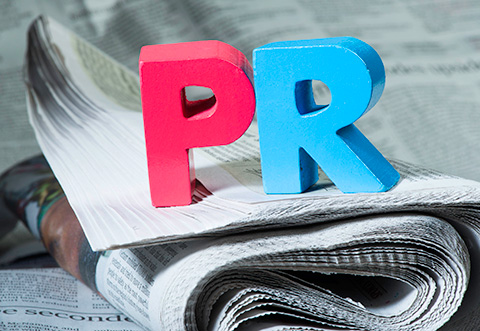Why are you writing that next press release? What are you announcing? Is what you are sending out something that is truly newsworthy guaranteed to excite your audience? If it isn't, you may want to re-think your strategy. And most importantly, what channels are you using to distribute your press release?
Google has had a number more changes over the few months, in particular, one that had been dubbed by Search Engine Land, 'The Quality Update'. To become more familiar with this update, we recommend reading it before your distribute your next press release. The article may be found here: http://searchengineland.com/the-quality-update-google-confirms-changing-how-quality-is-assessed-resulting-in-rankings-shake-up-221118
We are bringing some light to this because of a few rumours circulating online advising content should now be between 500-1500 words, to be worthy to search engines. This typically bucks the theory of 'journalists prefer stories to be short (less than 450 words) and to the point with little jargon'.
So which school of thought do you go with? Here is how we have broken it down.
In our experience, there are two mainstream ways to distribute your press release (social media aside). The first way returns to traditional roots where the basic theory of sending your press release to a journalist, that you have researched is still a good idea. This is typically done through email and attaching a press-kit or press release. If you are a local business and done this before, you would probably know what newspapers and who the journalists are that cover your beat. We cannot stress enough that you need to do your research to ensure you have the right journalist for your industry. Read what they have previously written. There is nothing more aggravating to a journalist than receiving a pitch for an area they do not even cover.
For this type of press release, we recommend keeping your story between 375-450 words. Some points within your press release are fine. Journalists are busy people and can appreciate point format.
Ensure your press release does not contain any industry jargon. Use traditional press formatting as well with clearly labeled contact information. As per an article from Sept 15 (http://blog.24-7pressrelease.com/2015/09/15/5-important-thoughts-to-consider-before-you-click-send-with-your-preferred-press-release-service-company/) make sure that point #5 holds true and your contact may actually be reached when the story goes out.
The second way to disseminate your news to media, bloggers and alike is through the use of a press release distribution service like 24-7 Press Release Newswire (packages may be found here: http://www.24-7pressrelease.com/price_plan_imp.php). When using online news distribution services, you may be able to tweak your style to be more along the lines of 'telling a story and engaging your audience'. This may typically be longer in length. Ensure a compelling headline is used to draw your reader in and continue reading your story. This is where having a story that is more lengthy might be alright.
When writing for online distribution, as per some helpful information from Google (https://support.google.com/webmasters/answer/6001093?hl=en) ensure what you write is useful or informative, written well (high quality), and truly engages your audience.
Google's 'site quality algorithms' are now 'aimed at helping people find "high-quality" sites by reducing the rankings of low-quality content.' What to learn more about the particulars of what counts as high-quality? We have a few points below that should be taken into consideration when writing your press release. For the full story, read it on Google's WebMasterCentral blog here:http://googlewebmastercentral.blogspot.ca/2011/05/more-guidance-on-building-high-quality.html
1. Is this article written by an expert or enthusiast who knows the topic well, or is it more shallow in nature?2. Does this article have spelling, stylistic, or factual errors? This is a very important factor. Not only can it potentially have an effect on your rankings, it is also a reflection on your company.
3. Are the topics driven by genuine interests of readers of the site, or does the site generate content by attempting to guess what might rank well in search engines?
4. Was the article edited well, or does it appear sloppy or hastily produced?
Although you may require two different types of press release, they are clearly for different purposes. This is not 'duplicate content' because more than likely a journalist that comes across a story that you have personally sent (local paper, publication, etc.) will contact you before writing a full blown story. That is part of the reason why they prefer point format, no jargon and not too lengthy.
 +1 888-880-9539
+1 888-880-9539